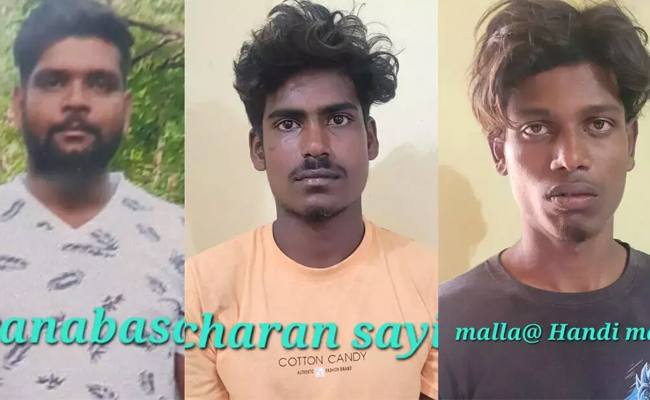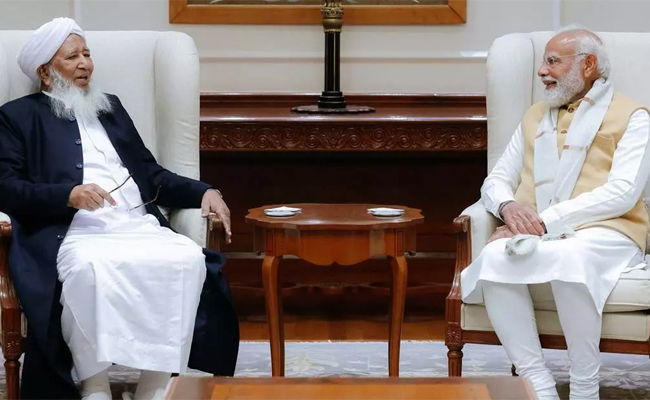New Delhi: Mega cyber attacks such as "WannaCrypt" and "Petya" this year forced governments and enterprises globally, including in India, to focus and invest more on bolstering their security networks.
In the first major attack of the year, the world reeled under "WannaCrypt" that locked files on computers. Hundreds of thousands of computers were infected with the malware in May.
The primary reason for this attack being successful was not the software but human error. On March 14 this year, Microsoft released a security update which addressed the vulnerability in the 16-year-old Windows XP operating system.
Once the patch for the vulnerability was released, hacker group "Shadow Brokers" exploited this loophole and wreaked havoc in 150 countries. Those who installed the update were saved, while several who did not, fell prey to the attack.
Soon after the "WanaCrypt" attack, tens of thousands of computers globally were affected by the "Adylkuzz attack" that shut down SMB networking to prevent further infections with other malware (including the WannaCrypt worm).
While Europe and major parts of the world struggled with another big ransomware attack called "Petya", India also bore the brunt. Some Indian servers were down owing to the Petya attack.
The Shipping Ministry said operations at one of the container terminals at Mumbai's Jawaharlal Nehru Port Trust (JNPT) was affected by Petya.
Companies like Genesis BM, a public relations firm, had to shut down systems in India after their international servers were attacked.
The month of May saw another cyber attack when a malware called "Judy" hit over 36.5 million Android-based phones, making its way through Google Play Store.
In August, the "Locky" ransomware, once considered almost defunct, sent over 23 million emails with the malware to the US workforce in just 24 hours. It scrambled the contents of millions of computers and demanded payment to unlock it.
A group of hackers leaked the "Game of Thrones" script, along with 1.5TB of HBO data that included other popular TV shows. The hacking group demanded approximately $6.5 million worth of Bitcoins from HBO.
A group of hackers also penetrated Equifax -- one of the largest credit bureaus in the world -- and stole personal data of 145 million people. Accountancy firm Deloitte was also targeted by a sophisticated hack that compromised the confidential emails and plans of some of its blue-chip clients and the attack went unnoticed for months.
In November, Yahoo agreed that it was attacked in 2013 wherein criminals had information about all three billion accounts. In another massive attack, hackers stole the personal data of 57 million customers and drivers from Uber Technologies. The breach was concealed for more than a year.
Most companies fall victim to cyber attackers either because of unpatched software with known vulnerabilities or because of the human factor like people falling victim to phishing emails, Finland-based cyber security firm F-Secure said.
Later in the year, the enterprise cyber security company FireEye said Chinese advanced persistent threat (APT) groups that have allegedly been creating cyber havoc internationally will shift their focus in 2018 to countries like India and Hong Kong and groups seen as a threat to Beijing's influence over global markets.
Slowly becoming aware of emerging cyber threats, organisations worldwide will spend $96.3 billion on security in 2018 -- an increase of eight per cent from 2017, according to a Gartner forecast.
More than 60 per cent of organisations globally will invest in multiple data security tools by 2020 -- up from 35 per cent today, it added.
"Cyber attacks such as WannaCry and NotPetya, and most recently the Equifax breach, have a direct effect on security spend, because these types of attacks last up to three years," the market research firm said.
To ward off future attacks, the Indian government set up NIC-CERT centre to monitor, detect and prevent cyber attacks on government networks. NIC-CERT will work in close coordination and collaboration with sectoral CERTs and CERT-In.
Prime Minister Narendra Modi inaugurated the fifth edition of the Global Conference on Cyber Space (GCCS) in New Delhi in November that witnessed top global security experts deliberating on ways to fight cybersecurity.
2017: Highlights
* "WannaCrypt" attack infected more than 230,000 computers in over 150 countries in a single day
* "Petya" ransomware attack hit India as some servers in the country became victim to the attack
* "Judy" malware hit over 36.5 million Android-based phones
* "Locky" ransomware sent over 23 million emails with the malware to the US workforce in just 24 hours
* The Indian government set up NIC-CERT centre to monitor, detect and prevent cyber attacks on government networks
* Prime Minister Narendra Modi inaugurated the fifth edition of the Global Conference on Cyber Space (GCCS) in New Delhi in November.
Let the Truth be known. If you read VB and like VB, please be a VB Supporter and Help us deliver the Truth to one and all.
New Delhi (PTI): Star batter Smriti Mandhana, who played a pivotal role in India's historic 2025 Women's World Cup triumph, was named the BBC Indian Sportswoman of the Year for 2025 at a glittering function here on Monday.
Chess prodigy Divya Deshmukh won the Emerging Player of the Year award, for her historic FIDE Women's World Cup triumph at just 20.
Preethi Pal was named the Para-Sportswoman of the Year, for winning two bronze medals at the 2024 Paris Paralympics in track and field, while Anjali Bhagwat was honoured with the Lifetime Achievement Award, recognising her pioneering career as India's first woman shooter to reach an Olympic final and her trailblazing success on the world stage.
Mandhana, who is currently touring Australia with the Indian team for multi-format bilateral assignments, said in a video message: "Thank you BBC for giving me the awardfor Best Sportswoman of the Year. 2025 was a special year for women's cricket, especiallytowards the end we had a World Cup and I'm happy I could contribute and help India win matches.".
At 29, the left-handed batter is already among the game's greats, with the second-highest number of centuries in women's One Day Internationals and ranking third in total runsscored among current players worldwide.
Hailing from Sangli city in Maharashtra, the affable Mandhana was inspired by her father and brother, both of whom played cricket at the district level.
In September last year, she made a 50-ball hundred against Australia – the fastest 50 over international ton (men and women) by an Indian in the format, breaking Virat Kohli's record.
The award winners were decided by a distinguished grand jury comprising Leander Paes, Deepa Malik, and Anju Bobby George.
Praising the athletes' achievements CEO of BBC News, Jonathan Munro said: "Congratulations to this year's winners who showcase the very best in sporting excellence. The BBC World Service is committed to bringing such stories of human endeavour and outstanding success to audiences across India and around the world.".
Additionally, the ceremony also celebrated a wide spectrum of talent and impact, recognizing star performers and changemakers for redefining the landscape of Indian sport.
BBC Star Performers of the Year 202.
• Indian Women's Cricket Team: for their historic World Cup victory.
• Ekta Bhyan, Deepthi Jeevanji and Preethi Pal: for their trailblazing performances at the World Para Athletics Championship.
• Indian Women's Cricket Team for the Blind: for their inspiring World Cup victory.
• Indian Women's Kabaddi Team: for their smashing victory in World Cup.
.
BBC Changemakers of the Year 202.
• Indian Women's Ice Hockey Team: for breaking barriers in a non-traditional sport.
• Rajbir Kaur: Indian field hockey player and former captain of the women’s national team.
• Savita Punia: Indian field hockey player and current member of the national team.
• Paani Devi: recognised for her impactful contribution to grassroots sport.





